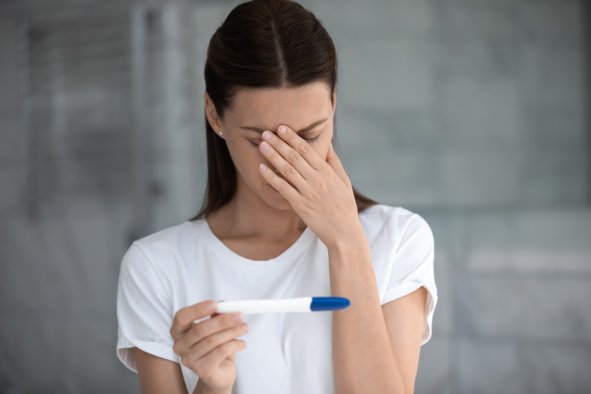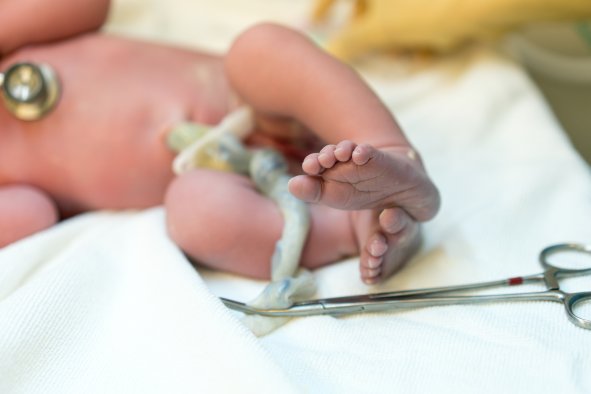A Florida woman was told she owes hundreds of dollars after suddenly losing Medicaid.
As the state of Florida faces a lawsuit alleging it illegally kicked recipients off Medicaid, many beneficiaries have come forward with their stories of unexpectedly losing coverage without a proper explanation.
The federal class action lawsuit accuses the state of violating residents' constitutional rights to due process and a fair hearing under the Medicaid Act. The plaintiffs claim that Florida violated these rights when it notified them they were ineligible because their incomes exceeded Florida's Medicaid requirements.
At least 1.8 million Floridians have been removed from Medicaid, with a substantial number of these deemed ineligible for exceeding the income limits.
Bev Dolgin, a 75-year-old resident of West Palm Beach, started receiving Medicaid last year.
"I was in poor financial straits. My house was foreclosed upon, my bills were excessive, and my husband was not working for various personal reasons, so the whole financial burden was on me," Dolgin told Newsweek.
While her parents had left her a condo in West Palm Beach, moving to a large coastal city did not help her financial outlook.
Dolgin is handicapped and currently lives without a car or any ability to work. She lives off one monthly Social Security check of $1,542 and relies on food stamps for much of her grocery budget.
Shortly after moving, Dolgin said she and her husband lost their car and their house, and "nothing was working out."
"Since I was the sole support of the family, it became harder and harder to make ends meet," Dolgin said.
Around the same time, Dolgin's husband became ill and then passed away, leaving her with "virtually nothing except debts," she said.
"I had to fend for myself," Dolgin said. "I applied for Medicaid out of desperation."
At the end of 2023, Dolgin was notified she had been approved for government health benefits, but this approval would be short-lived. By June of this year, Dolgin had received a letter from the state saying she was no longer eligible for Medicaid and that the state would also not be paying for her Part B Medicare, which covers doctor visits and lab tests.
"Medicare Part B premiums are withheld from Social Security checks, assuming the person isn't eligible for Medicaid," Louise Norris, health policy analyst for healthinsurance.org, told Newsweek.
"If they're dually eligible for both Medicare and Medicaid, the Medicaid program will pay the Part B premiums on their behalf. But if they're then disenrolled from Medicaid, that program would no longer be paying the Part B premium, and it would start to be withheld from the person's Social Security checks instead."
After the loss in coverage, Dolgin now says she is "shocked" and "devastated."
"The letter was very cold, with no real explanation," Dolgin said. "I was told that I made too much money, but that was all. No explanation, no compassion."
Florida entered its "unwinding process" for pandemic-era Medicaid policies during this time. During the pandemic, the federal government mandated states to keep Medicaid recipients through continuous coverage. But those protections ended last year, and states have been removing people from health coverage due to missed deadlines or eligibility changes since then.
When Dolgin got the news, she said she made several trips and phone calls to the Department of Children and Families, which runs Medicaid for the state of Florida.
"No one would explain why I was denied Medicaid, passing the buck to others who should have been able to help me but didn't," Dolgin said. "I was never given any straight answers by anyone, nor was I ever given the chance to explain my situation and why I still needed my Medicaid benefits."
Dolgin officially made an appeal in June but so far has not heard anything back.
In addition, she received a notice that she now owed them more than $400 due to the health care coverage mix-up. Dolgin now finds herself unable to pay many of her bills and said she can "barely scrape by."
Newsweek reached out to the Florida Department of Children and Families and Governor Ron DeSantis for comment via email.
Larger Lawsuit
Dolgin's story is one of many as witness testimony continues this week for Florida's Medicaid unwinding trial.
"The lawsuit, which was filed almost a year ago, alleges that Florida's termination notifications use standardized 'reason codes' that don't adequately explain why the person is being disenrolled," Norris said. "It notes that Florida has used this same process for years, despite being 'well aware' that the notices are confusing for the people who receive them."
Norris said if the judge rules in favor of the plaintiffs, some Florida residents could get their Medicaid reinstated, at least temporarily. But in the meantime, many like Dolgin say they're suffering.
"Florida's 'unwinding' policy is a tragedy, an apocalypse to almost 2 million people," Dolgin said. "The government needs to stop this unwinding policy, which is ruining its citizens. It needs to thoroughly examine the economic situation of each citizen before passing judgment."
While Dolgin and others moved to Florida for its weather and beaches, she now said they are dealing with "outrageous" prices on food, gas and housing, and many aren't able to make ends meet.
"Floridians are unfortunately in worse physical, emotional and financial shape than ever before," Dolgin said. "Isn't it about time that the Florida government actually begins to think about its people, to ensure that all its citizens have proper healthcare, proper nourishment, a proper, livable, manageable way of life?"
Now Dolgin said she is simply praying for a miracle.
"We want to be proud Floridians, proud of our way of living, proud to live in our great state. But until our government stops seeing all of us as chess pawns, as puppets, as a means of adding to its financial coffers, things will, I am afraid, continue to get worse," Dolgin said.
She added: "Why does Governor DeSantis and his buddies hate elderly people so when we have the third largest elderly population in the nation? Is saving money so important to our Florida politicians that they chose to neglect the living conditions, the health and financial condition of its elderly, because of the almighty dollar?"
Currently, Florida is one of the most populous states for elderly people across the United States. Roughly 4.6 million seniors lived in Florida in 2021, comprising more than 20 percent of the entire state's population.
If you lost Medicaid in Florida and would like to share your story, please reach out to s.blake@newsweek.com.
Disclaimer: The copyright of this article belongs to the original author. Reposting this article is solely for the purpose of information dissemination and does not constitute any investment advice. If there is any infringement, please contact us immediately. We will make corrections or deletions as necessary. Thank you.




